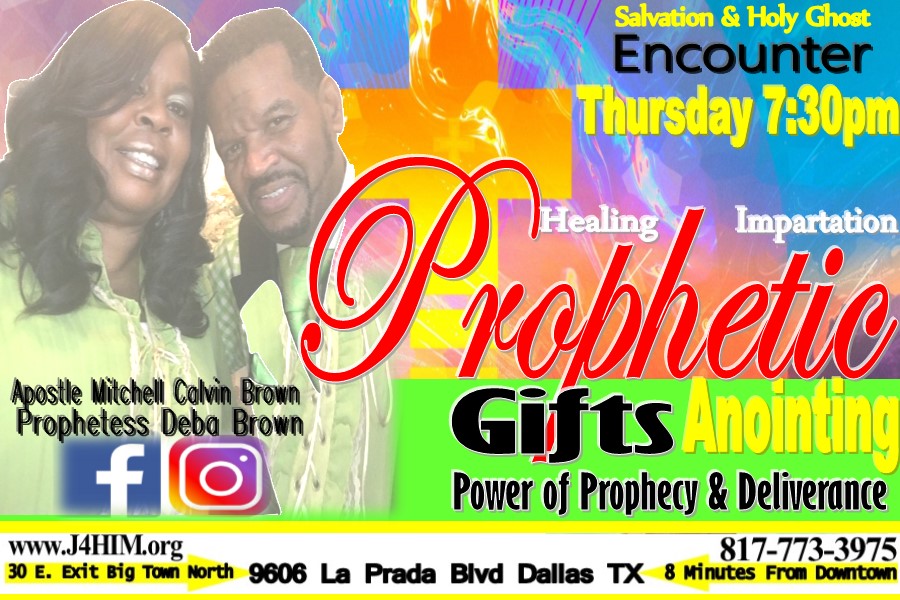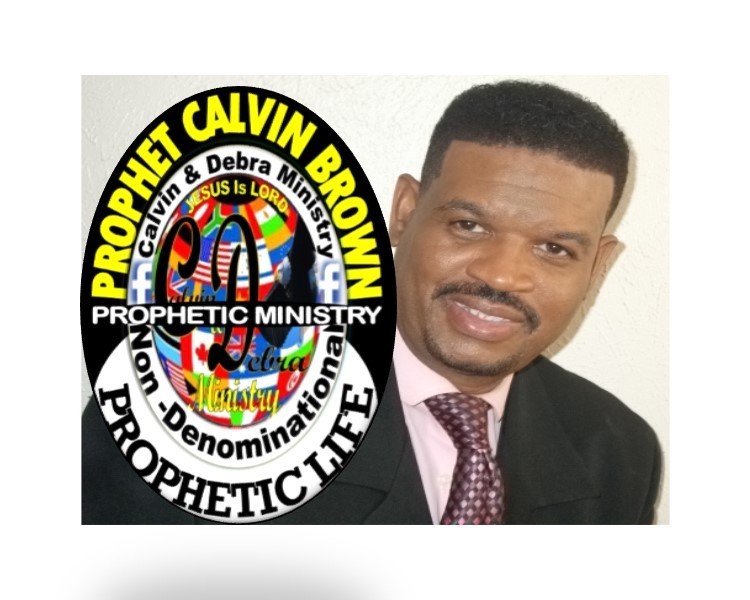
Section 1.
School of the Prophets is more than a name; within the name is a character. The word character means a distinctive mark. School of the prophets is a divine call of mentoring, leadership, and training. It is a process of equipping the body of Christ to embrace the anointing of the Holy Spirit into the unlimited deep call.
John 16:12 reads, I have yet many things to tell you, but you cannot bear them now. Now is the time to embrace a covenant community of trained leaders that can take you into the mysteries of God. The mysteries that have been lost by church tradition. The School of the Prophets is here to assist you in becoming the leader God created you to be.

Section 2
Company of the prophets
1 Sam 10:5
1 Sam 10:10
1 Sam 19:20

Section 3
School of Prophets(Sons of the Prophets)
Webster’s Dictionary: “Among the ancient Israelites, a school or college in which young men were educated and trained to become teachers of religion among the people. These students were called “Sons of the Prophets.” This refers to a group of people who have the calling to prophetic ministry and have come together at one place to be schooled in hearing and recognizing the true voice of God and how to properly and timely minister that world with grace and wisdom for the greatest glory to God and good to mankind. Samuel is recognized as the founder of the School of Prophets, which was continued by such prophets as Elijah and Elisha. Based on First Samuel 19:18,24 regarding Saul, David and Samuel, the “school of the prophets” also serves a covering for the Davidic company (the new order for ministry that God is raising up) to nurture and protect them from persecution of the old religious order (Saul’s).
Section 4
What is a prophet
(Heb, nabi, from a root meaning, “to bubble forth, as from a fountain,” hence to utter, comp. Ps. 45:1). This Hebrew word is the first and the most generally used for a prophet. In the time of Samuel another word, ro’eh, “seer”, began to .be used (1 Sam. 9:9). It occurs seven times in reference to Samuel. Afterwards another word, hozenh, “seer”(2 Sam 24:11), was employed. In 1 Ch. 29:29 all these three words are used: “Samuel the seer (ro’eh), Nathan the prophet (nabi”), Gad the “seer” (hozeh). In Josh. 13:22 Balaam is called (Heb.) a kosem=“diviner,” a word used only of a false prophet.
Section 5
Prophet Proclaimed
The “prophet” proclaimed the message given to him, as the “seer”
beheld the vision of God. (See Num. 12:6-8) Thus a prophet was a spokesman for God; he spoke in God’s name and by his authority (Ex. 7:1). He is the mouth by which God speaks to men (Jer. 1:9 and Isa. 51:16), and hence what the prophet says is not of man but of God (2 Pet. 1:20-21; comp. Heb. 3:7; Acts 4:25; 28:25).
Section 6
Prophetic Communication
Prophets were the immediate organs of God for the communication of his mind and will to men (Deut. 18:18-19). The whole word of God may in this general sense be spoken of as prophetic, in as much as it was written by men who received the revelation thy communicated from God, no matter what it’s nature might be.

Section 7
Prophets Foretells
The foretelling of future events was not necessary but only an incidental part of the prophetic office. The great task assigned to the prophets whom God raised up among the people was “to correct moral and religious abuses, to proclaim the great moral and religious truths which are connected with the character of God, and which lie at the foundation of his government.”
Section 8
Prophets as a Spokesman
Any one being a spokesman fro God to man might thus be called a prophet. Thus Enoch, Abraham, and the patriarchs were bearers of God’s message (Gen. 20:7; Ex. 7:1; Ps. 105:15). Moses and the other spokesman are ranked among the prophets (Deut. 18:15; 34:10; Hos. 12:13). The seventy elders of Israel (Num. 11:16-29), “when the spirit rested upon them, prophesied.” Asaph and Jeduthun “prophesied with a harp” (1 Chr. 25:3). Miriam and Deborah were prophetesses (EX. 15:20; Judg. 4:4).
Section 9
Prophetic Title
The title thus has a general application to all who have messages from God to men. But while the prophetic gift was thus exercised from the beginning, the prophetical order as such began with Samuel.
Section 10
School of the Prophet
Colleges, “schools of the prophets”, were instituted for the training of prophets, who were constituted, a distinct order (1 Sam. 19:18-24; 2 kings 2:3, 15; 4:38), which continued to the close of the Old Testament. Such “schools” were established at Ramah, Bethel, Gilgal, Gibeah, and Jericho. The “sons” or “disciples” of the prophets were young men (2 Kings 5:22; 9:1-4) who lived together at these different “schools” (4:38-41). These young men were taught not only the rudiments of secular knowledge, but they were brought up to exercise the office of the prophet, “to preach pure morality and the heart-felt worship of Jehovah, and to act along and coordinately with the priesthood and monarchy in guiding the state a right and checking all attempts at illegality and tyranny.”
Section 11
New Testament Prophets
In the New Testament times the prophetical office was continued. Our Lord is frequently spoken of as a prophet (Luke 13:33; 24:19). He has and is the great Prophet of the Church. There was also in the Church a distinct order of prophets ( 1 Cor. 12:28; Eph. 2:20; 3:5), who made new revelations from God. They differed from the “teacher,” whose office it was to impart truths already revealed.
Section 12
Old Testament Prophet
Of the Old Testament prophets there are sixteen, whose prophecies form part of the inspired canon. These are divided into four groups:
- The prophets of the northern kingdom (Israel), viz., Hosea, Amos, Joel, Jonah.
- The prophets of Judah, viz., Isaiah, Jeremiah, Obadiah, Micah, Nahum, Habakkuk, Zephaniah.
- The prophets of Captivity, viz., Ezekiel and Daniel.
- The prophets of the Restoration, viz., Haggai, Zechariah, and Malachi.

Section 13
The Prophetess
A prophetess is a woman of God whom the Holy Spirit has given the diving prophetic ability to perceive and speak the mind of Christ on specific matters to particular people. Prophetess is the proper title for a woman with this ascension gift and calling. Acts 2:17-18 says, And it shall come to pass in the last days, say God, that I will pour out of My Spirit on all flesh; Your sons and your daughters shall prophesy, Your young men shall see visions, Your old men shall dream dreams. And on My menservants and on My maidservants I will pour out My Spirit in those days; And they shall prophesy. The Old Testament and New Testament speak of several women that God blessed to be prophets.
Miriam-Exo. 15:20. Miriam the prophetess, the sister of Aaron, took a timbrel in her hand; and all the women went out after her with timbrels and with dances.
- Deborah-Jud. 4:4. And Deborah, a prophetess, the wife of Lapidoth, she judged Israel at that time.
- Huldah-2Kgs.22: 14. So Hilkiah the priest, Ahikam, Achbor, Shaphan, and Asahiah went unto Huldah the prophetess, the wife of Shallum the son of Tikvah, the son of Harhas, keeper of the wardrobe(now she dwelt in Jerusalem in the college and they communed with her.)
- Noadiah-Neh.6: 14. My God, think thou upon Tobiah and Sanballat according to these their works, and on the prophetess Noadiah, and the rest of the prophets that would have put me in fear.
- Daughters of Philip-Ac. 21:9. And the same man had four daughters, virgins, which did prophesy.
- Anna-Lk.236-38. And there was on Anna, a prophetess, the daughter of Phanuel, of the tribe of Aser: she was of a great age, and had lived with her husband seven years from her virginity. And she was a widow of about fourscore and four years, which departed not from the temple, but served God with fasting and prayers night and day. And she coming I that instant gave thanks likewise unto the Lord, and spoke of him unto all them that looked for redemption in Jerusalem.
Section 14
Different measures of the Spirit
- Double Portion= 2Kings 9-10
- Mosaic Portion= Divided into 71 portions, Num. 11:16-17, 25-29
- Elijah Portion= 2KIng 2:9
- Elijah Portion on John the Baptist= Luke 1:15-17
- Earnest of the Spirit= 2Cor. 1:22, 5:5, 1JOhn 4:13, Phil 1:19
- The Spirit without measure= John 3:34, Luke 4:16-21, Acts 10:38
- Baptismal measure= Mt. 3:11, 20:22-23
- Fullness of God= Eph 3:19, Rom. 15:29
- The River of Living Water= John 7:37-39
- The full anointing of the Spirit= Luke 24:29, John 14:12-25

Section 15
Explanation and Definitions of Prophetic & Apostolic Terms
- Company of Prophets- this term today refers to the multitude of prophets God is raising up around the world in these last days to usher in the Second Coming of Jesus Christ. These prophets are being brought forth to be taught, trained and activated into their preordained ministry of preparing the way for Jesus to return and establish His Kingdom over all the earth. (Isa. 40:3-5), as well as “making ready a people for Christ’s return.” They labor to purify the Church in righteousness and mature the saints for ministry, bride hood, co-labor ship and co-reigning over God’s vast domain (Luke 1:17;Eph. 4:11:5:27).
- Logos-Greek: “word”-the unchanging, inerrant, creative and inspired word of God.(See Psalm 119:89:”For ever, O Lord, Thy word{Logos} is settled in heaven.” Logos is the entire written Word of God-the Holy Bible. It is the complete revelation of God-His personage, character, plan and eternal purpose-as found in the Scriptures.
- Prophecy-Greek: ”propheteia,” a noun that “signifies the speaking fort of the mind and counsel of God. It is the declaration of that which cannot be known by natural means. It is the forth-telling of the will of God, whether with reference to the past, the present, or the future”(Vine’s. 893). New Testament prophecy functions in three realms:
- Jesus giving inspired testimony and praise through one of His saints by prophetic utterance of song of the Lord (Heb. 2:12:Rev. 19:10).
- One of the manifestations of the Holy Spirit called the gift of prophecy, which brings edifications, exhortation and comfort to the Body of Christ (1Cor. 12:10:Rom. 12:6).
- The prophet speaking by diving utterance the mind and counsels of God and giving a rhema word for edification, direction, correction, confirmation and instructions in righteousness (1Cor. 14:29; 2Tim 3:16-17).
D, Prophetic Presbytery-When two or more prophets and/or prophetic ministers lay hands on and prophesy over individuals at a specified time and place. Prophetic presbyteries are conducted for several reasons:
- For revealing a church member’s membership ministry in the Body of Christ.
- For ministering a prophetic rhema word of God to individuals.
- For impartation and activation of divinely ordained gifts, graces and callings.
- For the revelation, clarification and confirmation of leadership ministry in the local church.
- For the “laying on of hands and prophecy” over those called and properly prepared to be an ordained fivefold minister.
- Rhema-Greek:” word”-derived from the verb” to speak.” (See Romans 10:17: “So then faith cometh by hearing, and hearing by the word {rhema} of God.”) A rhema is a word or an illustration God speaks.

